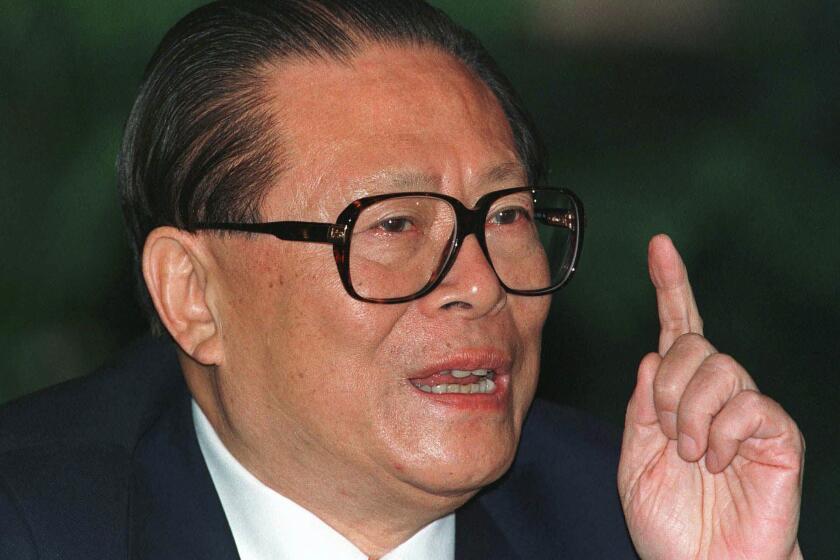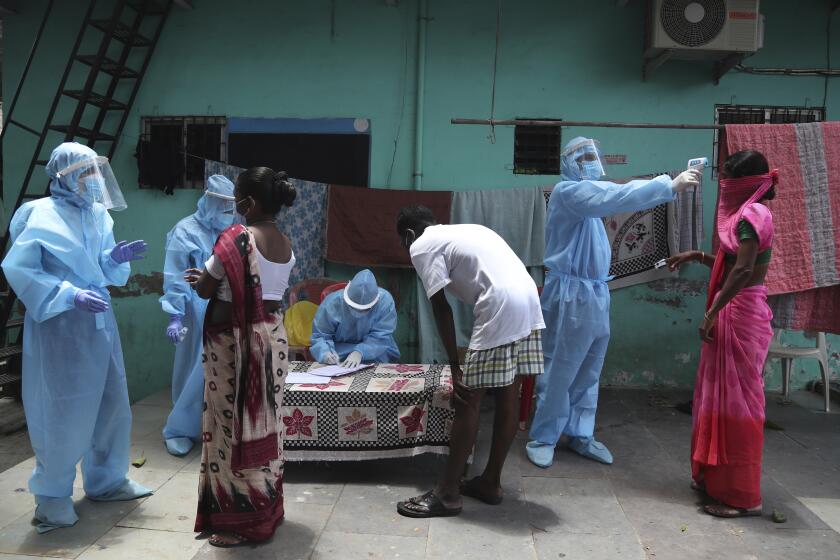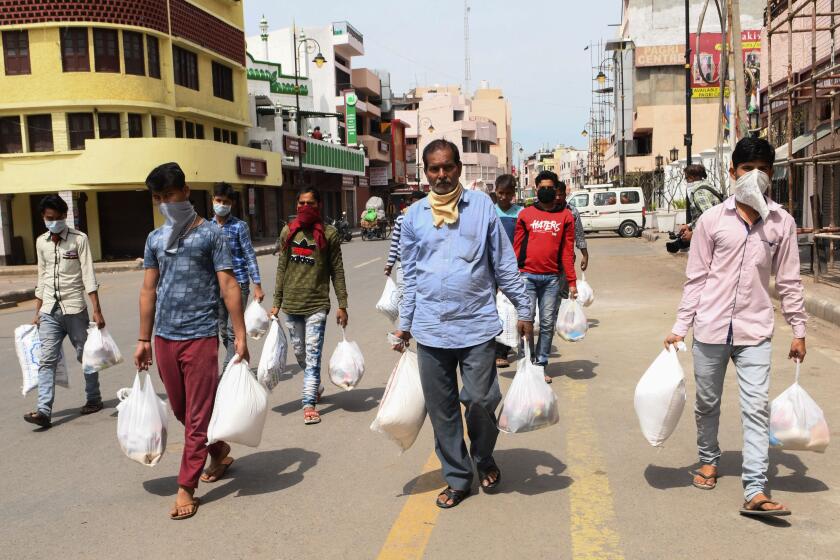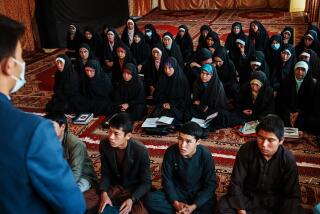India’s toughest exams get even more stressful during the pandemic
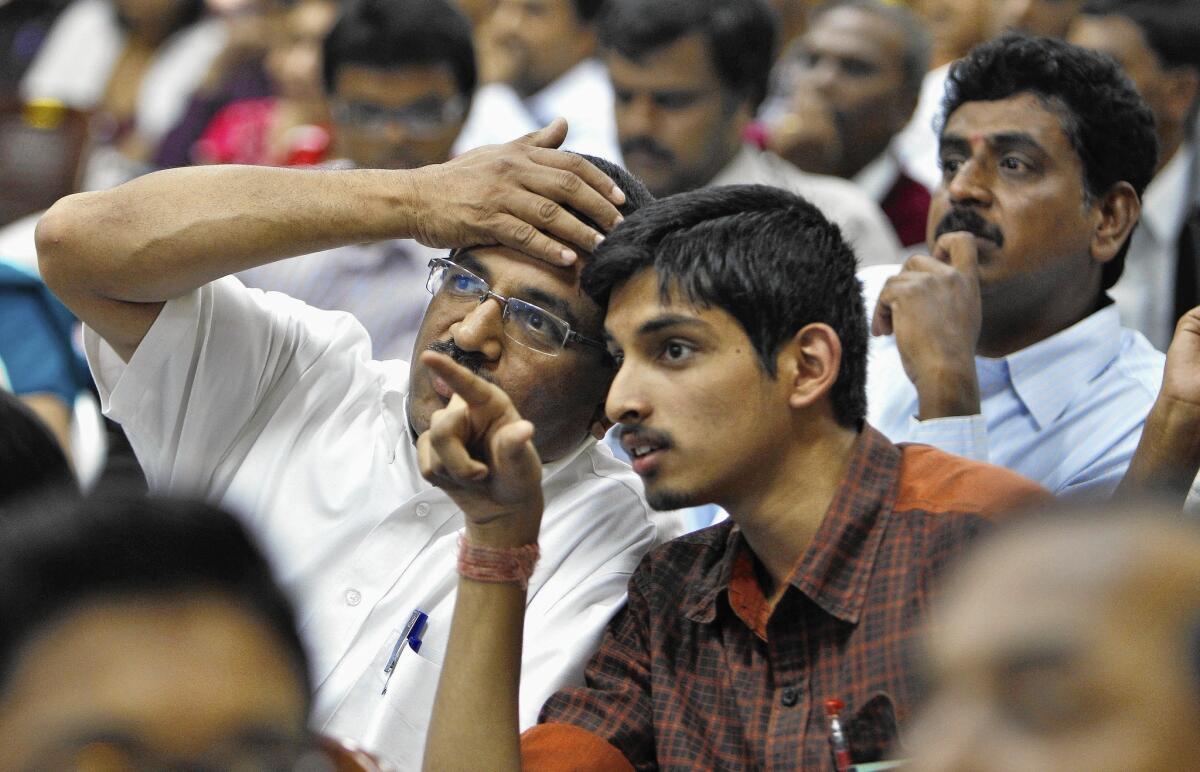
- Share via
MUMBAI, India — Bhuraj Pokhrel has been preparing for India’s high-stakes medical school entrance exam for three years. His father, a tea farmer, shelled out more than $2,000 for tutoring in the hope that his elder son would become the first in his family to attend a university.
Now with the test just two weeks away, the 19-year-old Pokhrel desperately hopes it will be postponed.
India is in the grip of one of the world’s gravest COVID-19 epidemics, with more than 3.3 million people infected, 60,000 dead and the caseload rising faster than in any other major country. Despite this, the central government is planning to administer the entrance exams for medical and engineering schools for 2.5 million eligible students, insisting it has plans in place to minimize the health risk.
But student groups are demanding the government reconsider, worried that traveling to and from testing sites and sitting in classrooms for hours at a time — combined with India’s less-than-shining reputation for observing strict protocols — will fuel the spread of a virus that has overwhelmed a beleaguered health system.
Many worry about contracting the virus and passing it on to parents or elderly relatives in a society where multiple generations often live under one roof.
“How can we take this exam with peace of mind?” Pokhrel said by phone from Batiamari, a village in Assam state in northeast India, where he lives with five family members, including his 83-year-old grandmother. Unable to focus, he’s spent the week participating in a social media campaign to persuade officials to put off the test.
“Some students have been preparing for years,” he said. “If they’re not able to [take] this exam, it’s an injustice for them. But if these exams occur, the government’s plans don’t guarantee safety for everyone — it could violate our right to life.”
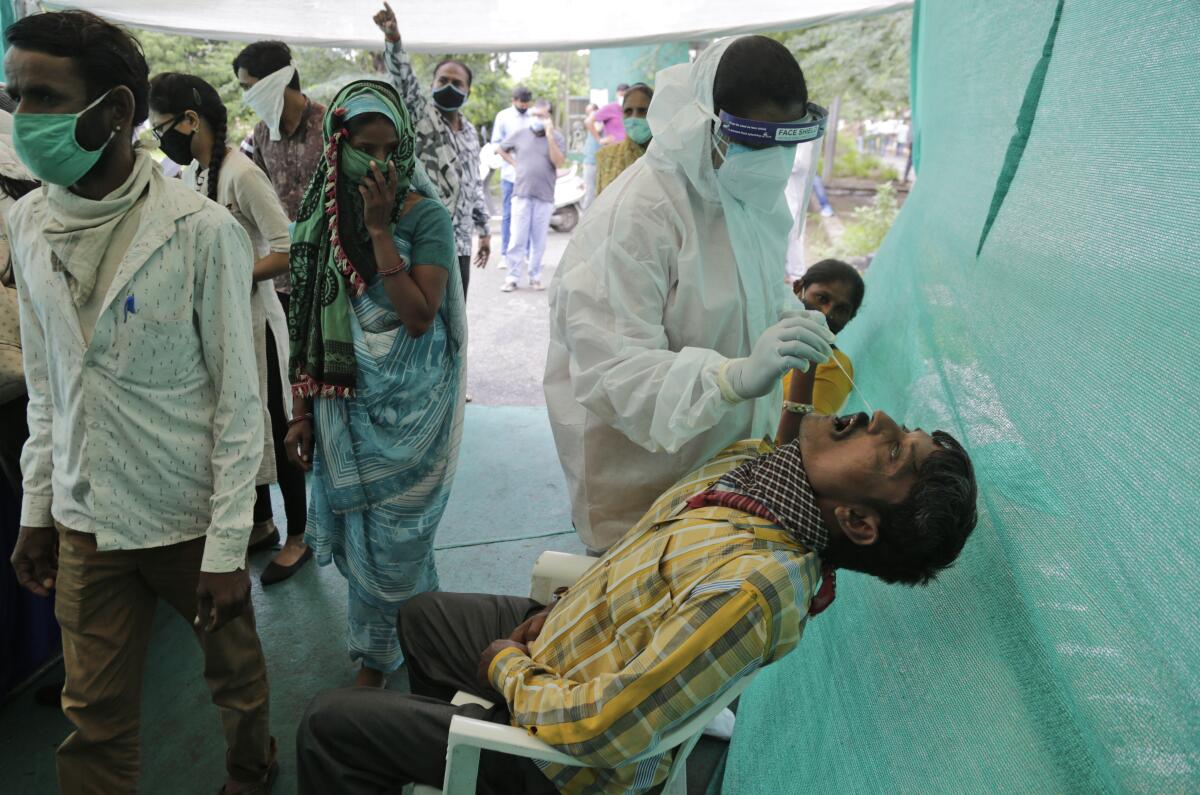
It’s a dilemma confronting governments around the world this summer: whether and how to restart education systems short-circuited by coronavirus outbreaks and lockdowns.
India has already twice postponed the grueling annual tests for those aspiring to enter two of traditional Indian society’s most celebrated professions, engineering and medicine. Last week, more than 4,000 members of the All-India Students Assn. reportedly mounted a daylong hunger strike demanding that the exams be postponed again.
But the country’s Supreme Court has dismissed a lawsuit filed by 11 students seeking a further delay, arguing it would mean the loss of an entire academic year.
“Life should move on,” said Justice Arun Mishra, “even in COVID-19 times.”
More stories from Asia
For Prime Minister Narendra Modi, proceeding with the exams would send a strong signal that life in India is returning to normal despite tens of thousands of new COVID-19 cases emerging daily. On Thursday, the country recorded its highest number of confirmed infections within a single day: 75,760. Earlier this month, India’s cumulative caseload shot up from 2 million to 3 million in less than three weeks.
The Joint Entrance Exams, which determine admission to the prestigious Indian Institutes of Technology, and the National Eligibility-cum-Entrance Test, the gateway to medical schools, loom large on the national calendar. For students, they bring relentless family expectations and often debilitating stress. Thousands have committed suicide amid the pressure at home and from coaches at private tuition centers.
Those who succeed find their pictures and scores plastered across newspapers, billboards and buses in advertisements for tuition centers hungry for their next lucrative crop of customers.
The anxiety is one reason many believe the tests should go forward in September as planned.
“We want to get it over and done with,” said Yogita Kulkarni, whose 17-year-old daughter has been preparing for the medical school test for 2½ years. “It is not good for the mental health of students or parents.”
Without any sign that COVID-19 is abating, Kulkarni, from the western city of Solapur, worries that pushing the tests back another year would mean twice as many students competing for the same number of slots. She thinks the students who want the exams postponed are unprepared and eager for the government to bail them out.
“They have time to tweet and upload posts,” she said. “Instead they should study.”
Mass screenings and quarantines have helped contain the coronavirus in Dharavi, home to 1 million people.
India’s National Testing Agency said that about 930,000 students were eligible for the engineering exams, which run from Sept. 1-6, and that 1.6 million could take the medical school test Sept. 13.
To improve social distancing, the agency said it has added at least 1,300 testing centers, planned for staggered entry and exit points, and adjusted schedules to reduce the numbers of candidates per classroom from 24 to 12.
It also called on state governments to help students travel to testing centers — a major challenge given that trains and most bus services remain canceled and parts of India have been deluged by floods caused by heavier-than-usual monsoon rains.
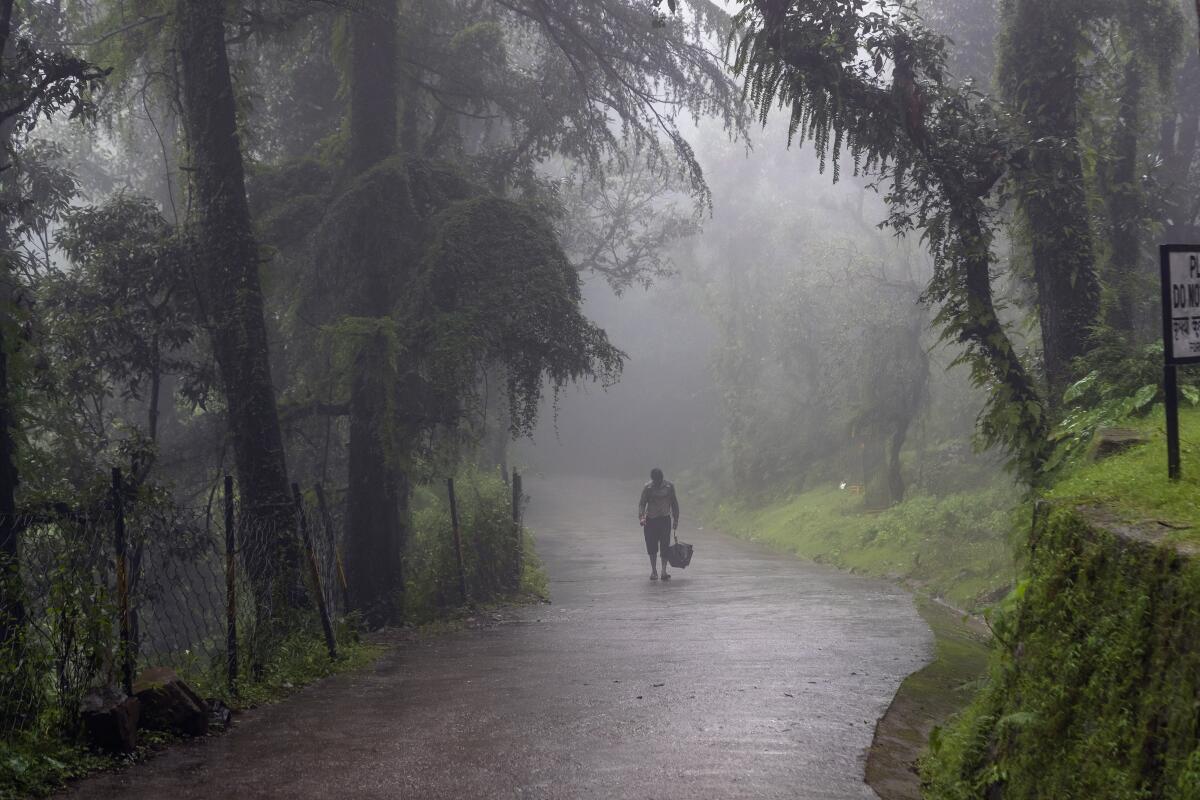
“My testing center is not in the best shape,” said Priyanshu Rai, a 19-year-old engineering candidate from the flood-stricken northern state of Bihar.
“It’s waterlogged in the monsoon. There are no parking spaces and only one car can enter at a time. There will be students coming from different districts so there is bound to be chaos.”
Swedish teen climate activist Greta Thunberg lent her voice to students demanding a postponement, tweeting this week that it was “deeply unfair” for India to administer the exams in the midst of flooding and a pandemic.
A three-week lockdown affecting 1.3 billion people has unleashed chaos as stranded migrant workers sleep in streets and police beat curfew-breakers.
India’s opposition parties have accused the government of a disjointed response, asking why the tests must go ahead even as major parts of the government, including Parliament, remain closed.
Pohkrel, at home in Assam, is tweeting his way through the rising anxiety. Above all, he worries what would happen if he falls ill. The nearest doctor to his village is 15 miles away, he said, and the closest major hospital even farther.
His testing center lies more than 200 miles from his house — a journey that can cost nearly $100 one way if he has to hire a taxi. With no money for a hotel, he would likely have to take the most important exam of his life on little to no sleep.
“If the exams are conducted, I’ll have to take them, because I can’t afford to pay for private coaching next year,” he said. “My parents are afraid, but what can we do? This is my future.”
Special correspondent Parth M.N. reported from Mumbai and Times staff writer Bengali from Singapore.
More to Read
Sign up for Essential California
The most important California stories and recommendations in your inbox every morning.
You may occasionally receive promotional content from the Los Angeles Times.
